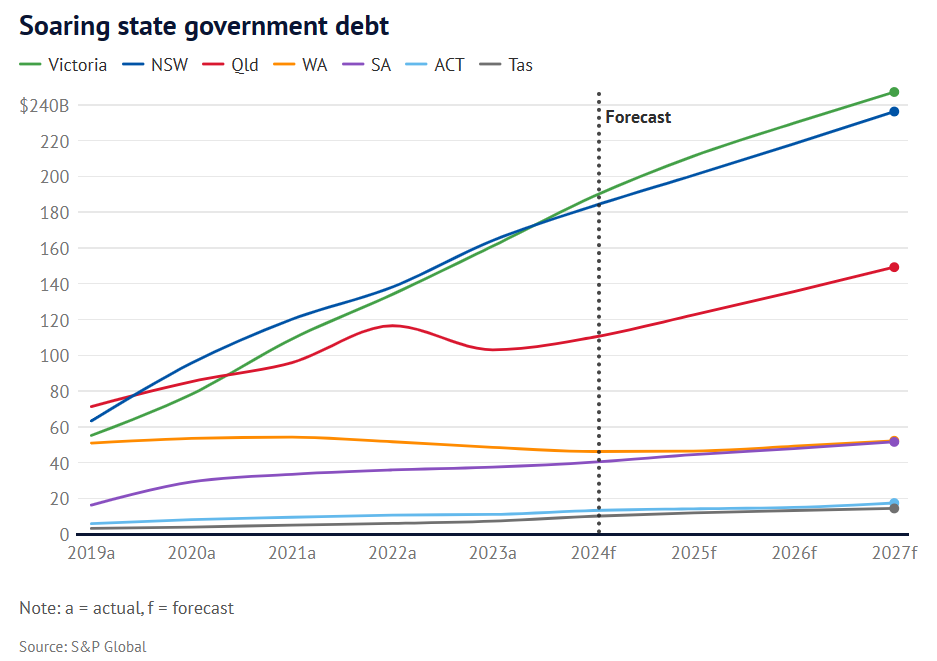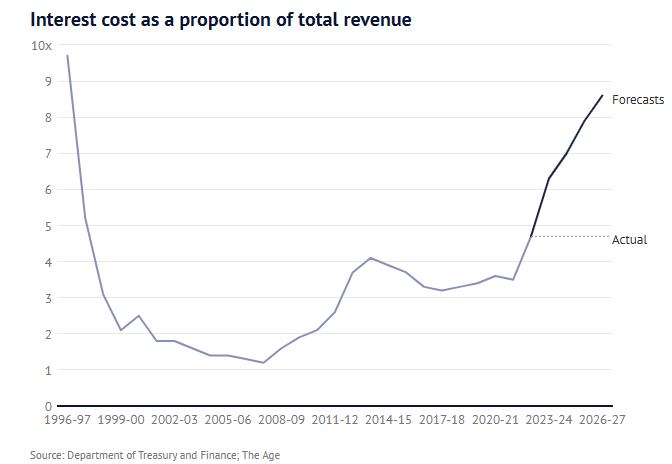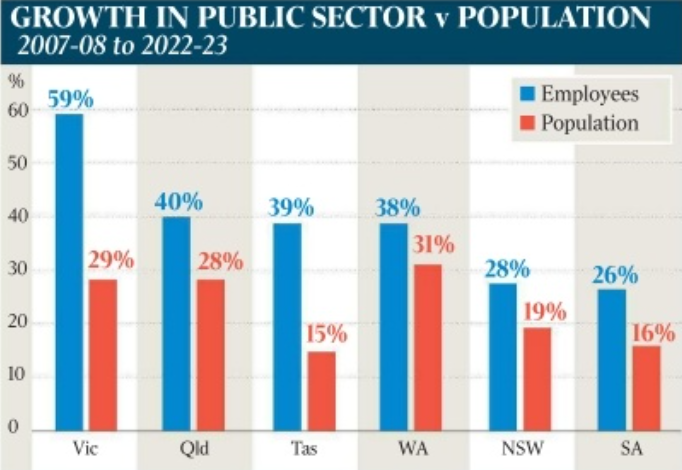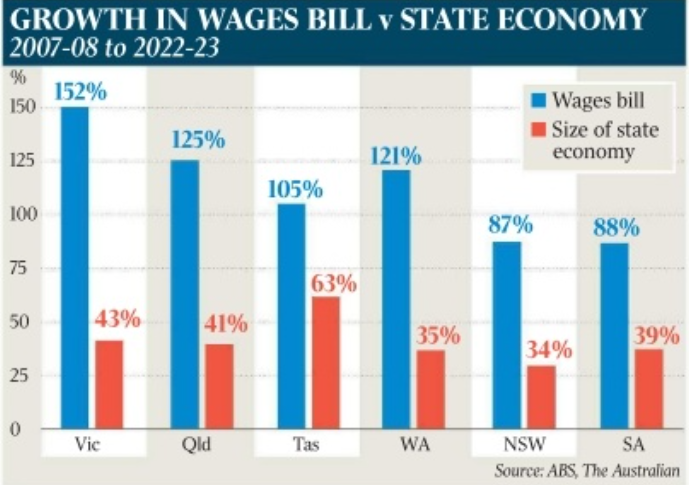Victoria already has the lowest credit rating and the worst debt profile in the nation.

Over the past several weeks, the world’s two largest credit rating agencies have warned the state government that it risks further downgrades unless it controls its debts.
A single-notch downgrade could see Victoria’s interest bill rise by 0.5% from its already punishing level, requiring further tax increases or cutbacks in government services.

With this background in mind, it was disturbing to read that Victoria’s 54,000 public servants have been awarded bonuses of between $709 and $3108, depending on their pay grade, which follows a $5,600 cost of living bonus received earlier this year.
One of the reasons why Victoria is drowning in debt and risks another credit rating downgrade is because its public sector workforce ballooned by 59% in the 15 years to 2022-23, well in excess of the 29% growth in the state’s population:

Source: The Australian
Victoria’s public servant wage bill also ballooned by 152% over the same 15-year period, easily outpacing the rest of Australia:

Source: The Australian
The average full-time weekly earnings of a Victorian public servant was $2,130 per week as of May 2024, some $48 higher than New South Wales ($2,082).
As of May 2024, the average total earnings of a Victorian public servant ($1,767) were also higher than those in New South Wales ($1,757).
This comes despite the cost of housing and living being significantly higher in New South Wales than in Victoria.
By 2027-28, Victoria is forecast to spend $40 billion a year on its public sector wages.
Clearly, if Victoria is to get the state’s debt situation under control and avoid a credit rating downgrade, rising interest payments, higher taxes, and degraded public services, then the state government needs to take an axe to the bureaucracy without touching front line services.
Much of Victoria’s bureaucracy is unnecessary waste. A clean-out and rationalisation are desperately needed.

